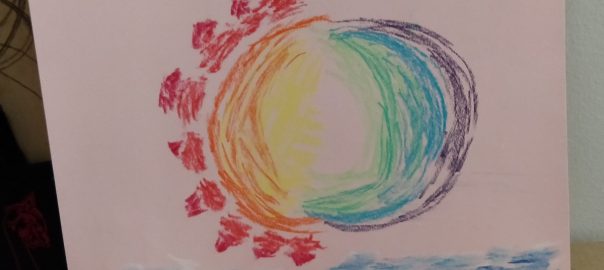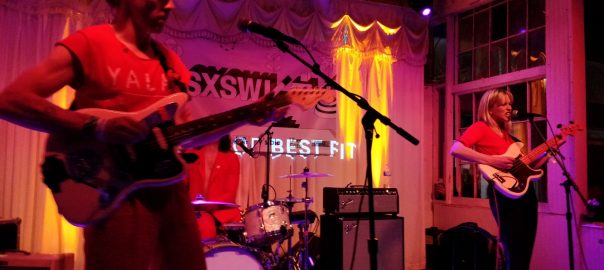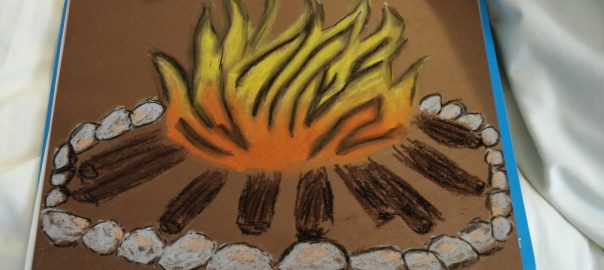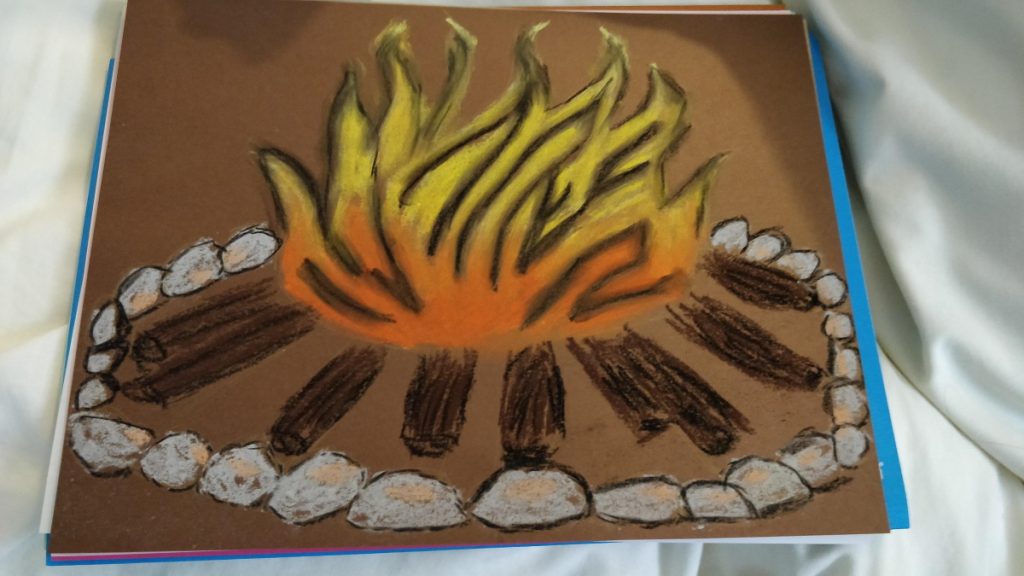I chose today’s song for analysis because it’s one whose original meaning I never would have guessed in a million years. What I love about it is that while so many of us have been off the mark about its meaning, I am sure that its legacy is far greater than the songwriter ever could have imagined.
Before 6 in the morning this past Sunday, I woke up feeling something in the pit of my stomach. Something’s not quite right, I said to myself. I turned over and over in bed, and the feeling would not go away. My eyes snapped open. I started to get very nervous. There was no way I was getting back to sleep. Depending on my connection to them and how strong the feelings are, I can feel anxiety from the people I know when they are in trouble or are emotional. But in past experience, that only happens when I’m awake.
I went downstairs and started doing some gentle stretches and movements to see if I would feel any better. In an attempt to defuse the worry inside me, I tried to laugh at myself. You’re imagining it. This isn’t that bad. Maybe it’s just gas, you idiot. But that didn’t make any sense to me. You didn’t eat anything funny, you didn’t eat right before bed, and you definitely ate hours ago. Trust a biologist to try and rationalize the actions of the human body. So predictable. Still, a warm cup of tea might do the trick…
The tea did help, thankfully. But as I was warming the water for a second cup, I noticed something else as I looked out the kitchen window and into the back garden. It was half-light of the early dawn. This time of the morning, I should be fast asleep. As I continued to look out the window, mug in hand, I noticed two birds flying together, right over a clearing on the property. Out of the corner of my eye, I saw a brown furry creature. It was a fox sauntering across the back patio. The relaxed way he walked, it was like he owned the place. I chuckled to myself.
If I hadn’t been awake, I wouldn’t have witnessed either of these events.
I began to consider that I was meant to wake up when I did. That the divine (in the spiritual sense more than the religious) wanted to jolt me enough with stomach pains to get me out of bed, put on my favorite old sweater, venture downstairs, and see with my eyes something so amazing. I stood there in awe as the sun slowly made its ascent over the house.
Unless you count the sunrises I’ve seen out the window of a train, bus, or a taxi leaving home or while in the UK, sunrises are not something I go out of my way to catch. In my travels, they have always been associated with either the excitement of an impending vacation or the deflating anticipation of leaving the land I love and returning home.
The sun rises every morning without fail, then sets in the evening to go to bed, readying itself for the next day to rise again. As if it was just like us.
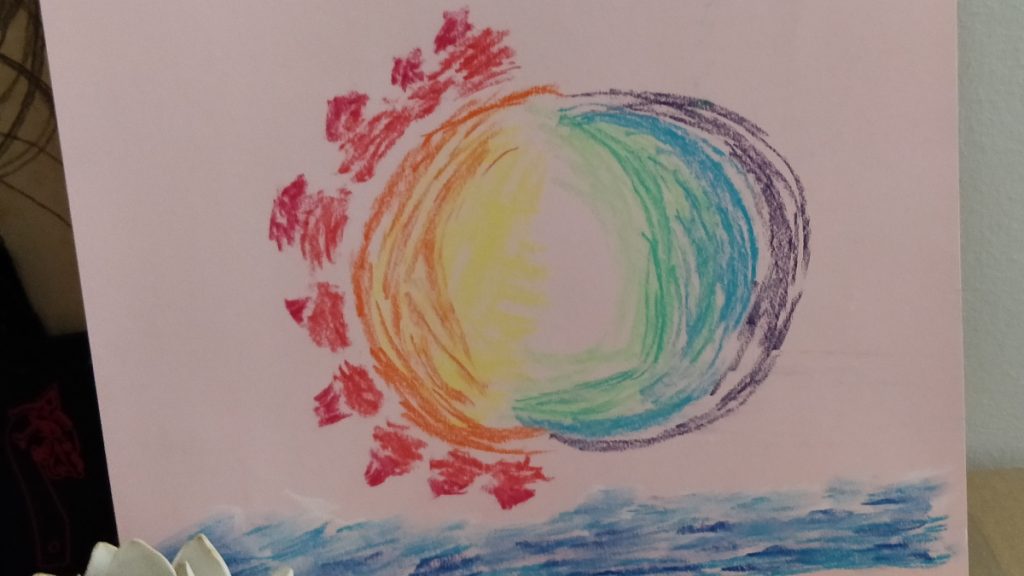
I now began to feel some guilt that this magic has occurred every day of my life, and I never paid any attention. After months of struggle, it was this weekend that I felt I was truly starting to see the light in my life. Just like I imagine it has been for many of you reading this, 2020 has been my wake-up call to the things I have missed. For me, the process stepped on the proverbial gas on the second Friday of January, when one of our own died after a valiant battle with cancer. This year has also given me a bigger push to identify where I have not been honoring myself as a human being and as a woman.
Of course, the coronavirus itself is not a blessing, as it is sickened and killed so many of our fellow humans. However, what the virus has done is given us a blessing in disguise, the ability to hit pause on our lives, so often often by blind responsibility and the need to succeed and gain material wealth, and in more recent years, too much attention to those electronic devices always in our hands. I really like to travel and the majority of my friends live abroad, so I must admit that my first concern once lockdown measures were taken was a purely selfish one. How and when would I ever be able to leave the country and see my friends again?
As coronavirus revealed itself to be a doctor’s worst nightmare – highly contagious and highly destructive to the human body – my mood shifted morosely. Fear, for myself, my family, and my friends’ well-being set in. We’ve all gotten past the initial shock of a worldwide pandemic, and so much has changed.
Consider for yourself how you have changed during this year. Now that many aspects of what we knew as our normal everyday lives have gone quiet, have you become more grateful for what you do have? In modern America, never before since the Great Depression have we been more grateful to have our health, running water, a roof over our heads, a safe place to sleep, and something to eat.
If you have been struggling with how your life has changed, I encourage you to begin a daily gratitude exercise, if you aren’t already doing this. I must admit that in the past when this was suggested to me, I balked, thinking this was new age crazy talk, and it wouldn’t actually do anything. There are direct, documented medical benefits to practicing gratitude, not to mention that it itself is an effective, free, and easy to use tool to ground yourself.
Now, on to the lyrics and the analysis!
Title: ‘I Can See Clearly Now’
Where to find it: ‘I Can See Clearly Now’ and ‘I Can See Clearly Now’ single (1972, Epic)
Performed by: Johnny Nash (and later, just as famously, by Jimmy Cliff)
Words by: Johnny Nash
Verse 1
I can see clearly now, the rain is gone
I can see all obstacles in my way
Gone are the dark clouds that had me blind
It’s gonna be a bright (bright)
Bright (bright) sunshiny day
It’s gonna be a bright (bright)
Bright (bright) sunshiny day
Verse 2
Oh, yes I can make it now the pain is gone
All of the bad feelings have disappeared
Here is that rainbow I’ve been praying for
It’s gonna be a bright (bright)
Bright (bright) sunshiny day
Bridge
(Ooh…) Look all around, there’s nothing but blue skies
Look straight ahead, there’s nothing but blue skies
Verse 3
I can see clearly now the rain is gone
I can see all obstacles in my way
Here is that rainbow I’ve been praying for
It’s gonna be a bright (bright)
Bright (bright) sunshiny day
It’s gonna be a bright (bright)
Bright (bright) sunshiny day
It’s going to be a bright (bright)
Bright (bright) sunshiny day
Outro
Yeah, hey, it’s gonna be a bright (bright) bright (bright)
Sunshiny day
If you’re my age, you probably associate ‘I Can See Clearly Now’ with the 1993 Winter Olympics-themed Disney film Cool Runnings. Although the storyline took liberties with the true story behind the 1988 Jamaican bobsled team, the film is one of those “rooting for the underdog” type of movies that never fails to inspire. Sad or depressed? Watch it to enjoy the palm trees and laugh at the seemingly ridiculous premise of a bunch of runners on a tropical island who want to be Winter Olympians, then feel good when their efforts are redeemed in the powerful ending.
Even if you don’t like reggae (which I don’t), there’s a lot to love about this song. For starters, whether he intended to or not, Johnny Nash used words that are easy to sing along to, as well as take advantage of a note progression that isn’t too hard for vocal cords to follow. It’s all very evocative without trying too hard to be so. What could be more easily imagined in your mind’s eye than a beautiful sun, rainbows, and dark clouds? For these reasons, this is a great song to teach kids.
What is likely to be lost on children is the redemptive tones of the song. As children, we are carefree and don’t think too hard about serious troubles. It’s when we are adults that our ills, responsibilities, failures, anything looming large really start to bother us. Worry, anxiety, and depression, in their varying degrees, creep in. We lose sleep, self-esteem, and possibly even our own sanity.
From personal experience having heard it myself, quite possibly the worst thing you can say to a person who’s depressed is “it can’t be that bad.” The problem with depression is that when you’re inside it, it’s like you’re stuck in an entirely black, sunless abyss with no way out. It’s so dark that if there are any escape routes, any ropes to footholds to grab, or even a glancing hope that when it gets light out again, you might be able to come out, you can’t see any of it. Yes, perhaps the almost Disney-fied image of a rainbow being revealed after the dark clouds have parted is an oversimplification, but for a radio-friendly pop single clocking in at less than 3 minutes, we must give Nash the benefit of the doubt.
Outside of its film connection, why did ‘I Can See Clearly Now’ become such a memorable track? It should come as no surprise that the tune has been used in numerous advertisements, ranging from allergy medication, window cleaner, and even instant coffee. I could have sworn an American eyeglass store used it, too. I worked for a time in advertising sync, a very competitive business. As someone who spends inordinate amounts of time interpreting lyrics, one of the most disappointing things I learned about syncing was that the company selling the product are often all too happy to match a song to their products literally with the words, often discounting the feeling or mood of the song.
I suppose it is appropriate, then, to learn that in the case of ‘I Can See Clearly Now,’ legend has it that Nash wrote the lyrics to the song while recovering from cataract surgery and are therefore pretty much literal. Check out Nash performing the song on The Midnight Special in 1973 below.
